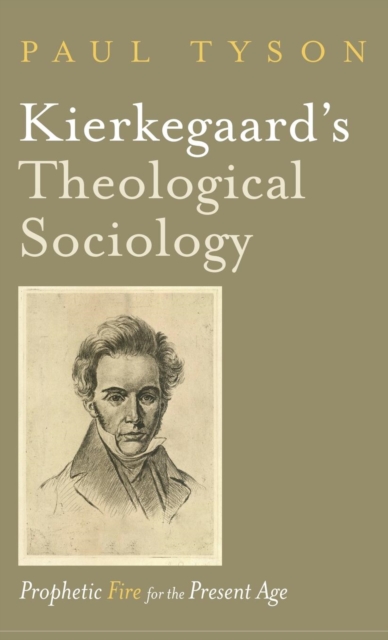CITESTE MAI MULT
Detalii
Descriere RO
Kierkegaard developed a distinctive type of sociology in the 1840s--a theological sociology. Looking at society through the lens of analysis categories such as worship, sin, and faith, Kierkegaard developed a profoundly insightful way of understanding how, for example, the modern mass media works. He gets right inside the urban world of Golden Age Denmark, and its religion, and analyses ""the present age"" of consumption, comfort, competition, distraction, and image-construction with astonishing depth. To Kierkegaard worship centers all individuals and all societies; hence his sociology is doxological. This book argues that we also live in the present age Kierkegaard described, and our way of life can be understood much better through Kierkegaard's lens than through the methodologically materialist categories of classical sociology. As social theory itself has moved beyond classical sociology, the social sciences are increasingly open to post-methodologically-atheist approaches to understanding what it means to be human beings living in social contexts. The time is right to recover the theological resources of Christian faith in understanding the social world we live in. The time has come to pick up where Kierkegaard left off, and to start working towards a prophetic doxological sociology for our times. ""Everyone supposedly knows that Kierkegaard was an 'individualist' who had little understanding or appreciation of society. This book completely undermines that myth by showing us how much Kierkegaard has to contribute to social theory. The author also thereby helps us see that theology cannot only learn from sociology but has much to contribute to social theory in turn."" --C. Stephen Evans, University Professor of Philosophy and Humanities, Baylor University ""Tyson's book reveals Kierkegaard at his most prophetic in the senses of being both subversive--confronting how we have come to think of ourselves and society--and eerily prescient and timely. Tyson argues that Kierkegaard's theological sociology arising in the tinderbox of 1840s can be seen as a basic alternative to Marx's contemporary, deeply secular, and epoch-making understanding of society. As such it provides an alternate vision of society in the wake of Marx and secular modern understandings of human society."" --Christopher Ben Simpson, Lincoln Christian University ""Kierkegaard does not only analyze individuals. In this book, the author first shows that Kierkegaard also has a profound understanding of the modern, liberal society. Then he applies this insight on our contemporary challenges in a highly meaningful way. This book boldly and creatively addresses the relation between theology and sociology and explores how we are impacted by our cultural and religious environment."" --Knut Alfsvag, VID Specialized University Paul Tyson is a Senior Research Fellow with the Institute for Advanced Studies in the Humanities at the University of Queensland, Australia. He also lectures in philosophy at the Millis Institute. His research is presently focused on the theology of science.
EdituraCascade Books
Dimensiuni145 x 223 x 18
Data Publicarii29/03/2019
Format
Cartonata
Numar pagini148
Aceasta este o carte in limba engleza. Descrierea cartii (tradusa din engleza cu Google Translate) este in limba romana din motive legale.
Kierkegaard a dezvoltat un tip distinct de sociologie in anii 1840 - o sociologie teologica. Privind societatea prin prisma unor categorii de analiza, cum ar fi inchinarea, pacatul si credinta, Kierkegaard a dezvoltat un mod profund intelegator de a intelege cum functioneaza, de exemplu, mass-media moderna.

